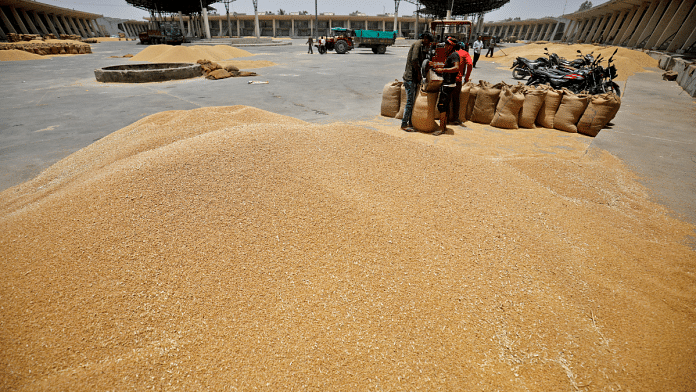New Delhi: India has set up a panel of officials to assess the impact of rising temperatures on the wheat crop, government officials said on Monday, as the weather office warned that above normal temperatures would prevail in key producing states.
The world’s second biggest wheat producer earlier this month said it’s production was likely to rise 4.1% to a record 112.2 million tonnes.
However, a lack of winter rains has raised temperatures in some parts of India’s northern states where farmers grow wheat. Last week, the daily average temperature hit early to mid-March levels, according to weather officials.
India, also the world’s second-biggest consumer of wheat, banned exports in May 2022 after a sharp, sudden rise in temperatures clipped output, even as export demand picked up to meet the global shortfall triggered by the Russia-Ukraine conflict.
“The government has decided to form a committee to monitor the impact of higher temperatures, but the current crop condition looks good,” said one of the officials, who didn’t wish to be named in line with official rules.
India’s agriculture commissioner will head the committee, and officials from the country’s key wheat growing states and government scientists will also be on the panel.
Maximum temperatures in some states this week jumped to 39 degrees Celsius, which is up to 9 degrees Celsius above normal, India Meteorological Department (IMD) said in a statement on Monday.
Maximum temperatures are likely to remain 5 to 7 degrees Celsius above normal over many parts of northwest India during the next three days, it said.
“This higher day temperature might lead to adverse effects on wheat approaching the reproductive growth period, which is sensitive to temperature. High temperature during flowering and maturing periods leads to loss in yield,” the IMD said.
The country grows only one wheat crop in a year, with planting in October and November, and harvesting from March.
– Reuters
Also read: Early heat may adversely affect wheat, other crops: IMD



